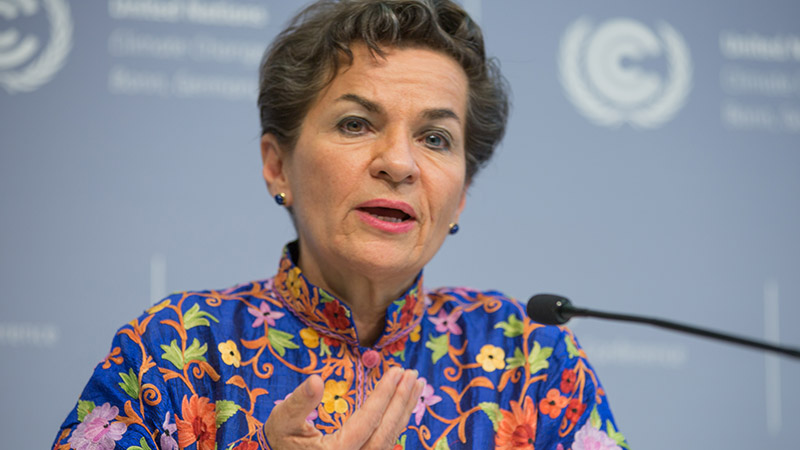Christiana Figueres, former climate chief and architect of the Paris Agreement, is losing ground in the race for the UN top job.
In the latest secret ballot of security council members, five encouraged her bid and eight discouraged it, as shown in this Reuters graphic.
Second straw poll. Not what we expected but looking forward to further engagement. #CF4SG #NextSG #She4SG
— Christiana Figueres (@CFigueres) August 5, 2016
To replace Ban Ki-moon as secretary general, a candidate needs to win the backing of nine countries. They also need to avoid antagonising the five permanent members (P5) – China, Russia, US, UK and France – who each get a veto.
Ex-Portugal prime minister Antonio Guterres is the frontrunner, with 11 endorsements and two objections. Still, multiple shifts in the rankings make the result hard to predict.
Guterres would not break the glass ceiling for female representation, which campaigners say is long overdue. Nor does he represent Eastern Europe, whose “turn” it is to lead under a loose UN convention of geographic rotation.
Informal straw polls will continue on the 11-strong pool until the council converges on one person to put forward for a General Assembly vote.
Weekly briefing: Sign up for your essential climate politics update
A civil society campaign to get the first woman into the role is urging the five remaining female candidates not to drop out.
“When the P-5 begin using their veto power, things will dramatically shift again,” wrote the campaign leader Jean Krasno in an open letter.
“WomanSG will continue to maintain pressure on Member States to consider that it is time for a woman as UN Secretary-General.
“We understood this struggle would not be easy, knowing the history of discrimination against women, yet, times are changing and we must step up our efforts to push for women’s empowerment.”
Thanks to #UNSC members who supported me in 2day’s vote for #NextSG 🌺. Disappointed by outcome. Discussing this over coming days. #Helen4SG
— Helen Clark (@Helen4SG) August 5, 2016
Figueres pitched herself as a hope-and-change candidate, with the Paris Agreement as evidence she can crack the toughest multilateral problems.
While widely adored by climate advocates, critics note she is relatively inexperienced in security matters.
Helen Clark, UN development chief and former New Zealand prime minister, also found popular support did not translate into security council backing.
A favourite at the outset, she got six encourage and eight discourage votes in the last round.
The UN has sought to make the selection process more transparent, hosting a televised debate last month.
Yet the key decisions are still made behind closed doors, with the owners of nuclear weapons wielding the most power.
“The secret ballots are indicative, but ultimately they are just suggestions,” said Thomas Hale, public policy professor at Oxford University’s Blavatnik School.
“It really comes down to discussions between four or five countries.
“There is a lot of interest in making this a more open process, but without changing the top level decision making rules, they don’t actually change that much.”
